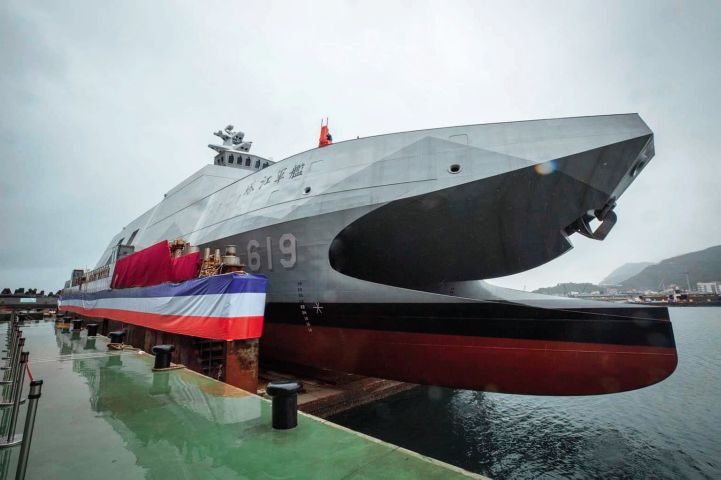Indeed, none of these mofo with academic credentials has served as day in the military, commanded any formation or understand the systems engineering.Please don't post trash articles by economically illiterate and innumerate simpletons. This is just an exercise in "garbage in, garbage out." And the military "analysis" is of the same quality as the economics.
I work in the DC and there are fuckload of these morons running around like they are some combination of Gordon Moore, John Boyd and George C. Marshall.
1. Whatever you can get in terms of talent by conquering the island, you can get by paying the engineers 3X the salary. You can't get innovation on the end of a gun.Washington’s first priority must be shoring up . If China absorbed Taiwan, it would gain access to the island’s world-class technology,
2. The SCS sea islands can already do most of that. But why would the Chinese do that? The PRC is the largest, most robust and vibrant trading partner for JAP and PHI.acquire an “unsinkable aircraft carrier” to project military power into the western Pacific, and gain the ability to blockade Japan and the Philippines.
3. The island has no determination at all. The real way to measure determination is looking at enlistment rates on Taiwan, and its dismal.China has spent decades trying to buy reunification by forging economic links with Taiwan. But Taiwan’s people have become more than ever to their de facto independence.
4. None of what these morons say makes a lick of difference, because all these displays and posturing are unsustainable. In another 10-15 years, China's economy will be 2X the size of the US, and no amount of missiles and FONOPs can change the imminent fiscal collapse in DoD spending.
5. High tech minefield. Been watching too many re-runs of Saving Private Ryan.Washington should instead deploy hordes of missile launchers and armed drones near, and possibly on, Taiwan. These forces would function as high-tech minefields, capable of inflicting severe attrition on a Chinese invasion or blockade force. China needs to control the seas and skies around Taiwan to achieve its objective, while the United States just needs to deny China that control. If necessary, the United States should cut funding for costly power-projection platforms, such as aircraft carriers, to fund the rapid deployment of loitering cruise missiles and smart mines near Taiwan.
6. Japan: They are fence sitters. In their eyes, the US can always go home across the Pacific, China will always be next door.Finally, the United States should enlist other countries in Taiwan’s defense. Japan might be willing to block China’s northern approaches to Taiwan in a war; India might allow the U.S. Navy to use the Andaman and Nicobar Islands to choke off Beijing’s energy imports; European allies could impose severe economic and financial sanctions on China in case of an attack on Taiwan. The United States should try to convince partners to commit publicly to taking these types of actions. Even if such measures are not decisive militarily, they could deter China by raising the possibility that China might have to fight a multifront war to conquer Taiwan.
EU has had enough of US, if current investment deals are any indication are pretty open to working with PRC at the cost of US. India, well what can I say, those guys are a hazard to themselves.
These guys are just straight delusional. I don't know what they teach in IR school, but apparently whole lot of theory and very little in way of strategy, economics and technology.
Sad, really.
I fully agree with you. If this is the best they can do, then its time to go home.



